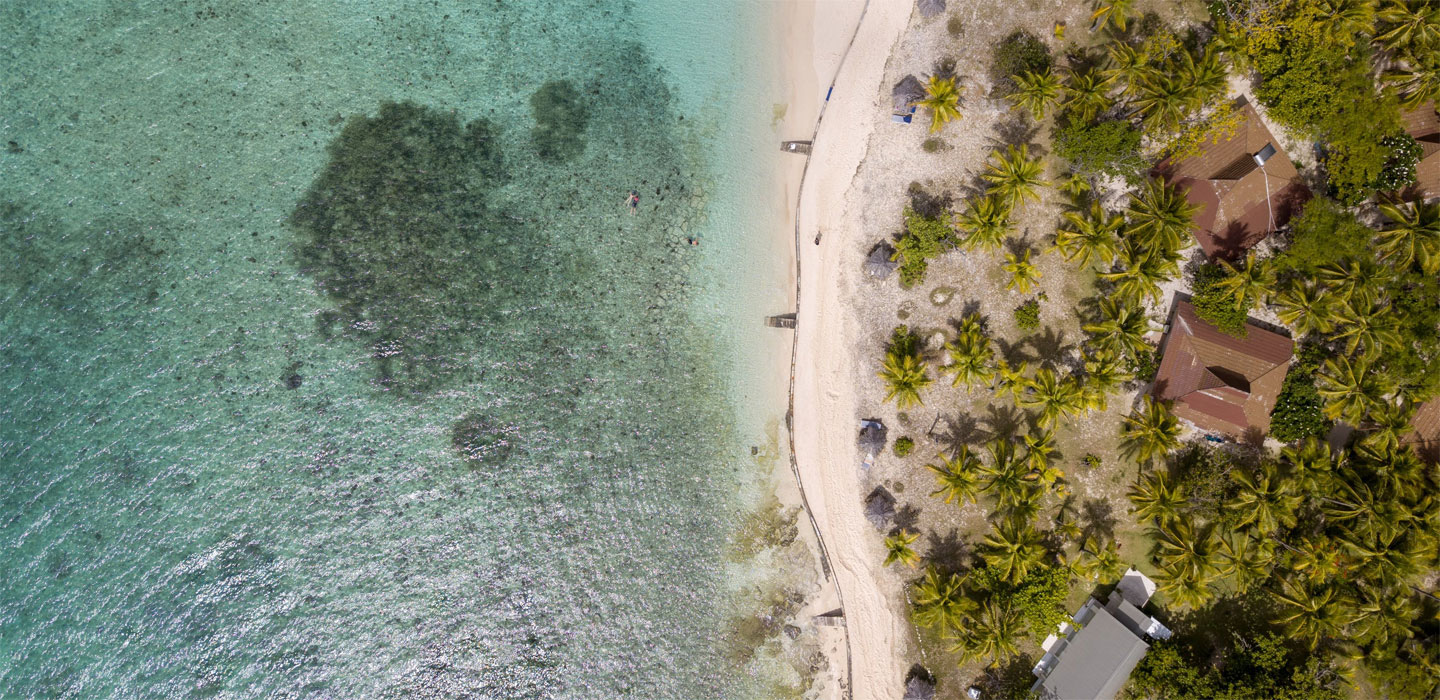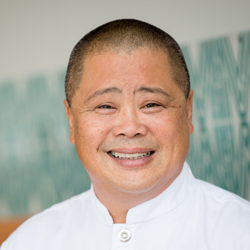Interview with Recipes for Change Chef Lance Seeto
IFAD Asset Request Portlet
Asset Publisher
Interview with Recipes for Change Chef Lance Seeto
By Lance Seeto

What drew you to being a chef in the first place?
One of the basic pleasures of cooking is seeing satisfied family, friends or customers enjoy your creations, and as a kid I loved cooking and eating so it was a natural career choice for me. I come from a long line of cooks so it is also in my blood!
What makes Pacific/Fijian cuisine so unique?
Nutrition and fresh flavours - and its ancestral gastronomy. To the developed Western palate the flavours of Pacific Island cuisine can be described as fresh, clean and unadulterated, with tones of citrus, coconut and sea salt. The ancient gastronomy still practiced today, and handed down by the Lapita people thousands of years ago, features natural flavours, preservation techniques and textures that are commonly not seen - and therefore is somewhat new to outsiders.
Being more food/ingredient aware – what are the benefits for home cooks?
Health and longevity. One of the major causes of non-communicable diseases in the region is the consumption of processed and modified foods, but many Pacific Island nations still have the ability to eat like their ancestors with fresh produce - if they choose. The nutritional, rejuvenating and repairing properties of Pacific Island produce cannot be overstated, and islanders should be eating more of it.
Working with IFAD Recipes for Change you have seen our project in Tonga – how important is it for you to work with rural communities?
The longevity and survival of this race is one of the most important tasks for IFAD and other world bodies. In addition to the urgent climate change issues of salinity and rising seas, the Pacific Island communities are today succumbing to modern diseases caused by a change of diet and lifestyle. Education and knowledge are needed to explain how eating junk and processed foods over a lifetime will lead to an early death, especially for islanders. Whether it is growing food, eating food or farming food – if we do not tackle the issue of NCD awareness, there may not be many Pacific Islanders left to enjoy the very islands we are trying save from global warming.
What in your opinion are the most pressing issues facing small farmers in the Pacific?
Whilst most Pacific countries have issues of soil quality, limited water and access to farming technologies, in nutrient-rich Fiji it is access to markets and a consistent supply of fresh produce. Governments, NGOs and donors are expending considerable resources in agricultural and aquacultural projects, but if the farmer has no buyers his crops have limited value. More resources need to be spent to develop the ''demand'' end of the supply chain – whether it is for domestic consumption or international sale.
What's your next big project?
I currently head the new Culinary Federation of Fiji – a non-profit body of executive chefs that is working with farmers, hotels and suppliers to help transform Fiji into a global culinary destination.
Can you share a recipe with us?
This recipe is inspired by the Pacific's kokoda or oka i'a fish salad, but uses chicken instead.
Seared chicken kokoda
- 500g chicken fillet, skin on
- ½ cup (120ml) lime juice
- 2 spring onions
- 2 medium tomatoes
- 1 small cucumber
- 1 small red or yellow capsicum/pepper
- 1 cup (240ml) coconut cream
- Salt
- Red chili finely chopped (optional)
Instructions
- Cover the chicken fillets with lime juice and set aside for about two hours or overnight to partially cure the poultry.
- While the chicken marinates, slice the spring onions, chop up the unseeded tomatoes and the cucumber in small dices, and finely slice the capsicums.
- When ready, drain the lime juice from the chicken and grill skin-down in a cold pan with no oil. Let the chicken skin release its natural oil as it heats. Cook both sides until fully cooked. Keep the oil.
- Chop the chicken while warm into bite-sized pieces; add the salad vegetables, coconut cream and a teaspoon of the chicken oil. Season to taste with salt and eventually add some chili.
- Serve immediately.
Also, try this recipe: Vai Ika (Tuna and taro leaves).
Find out more about Recipes for Change
Publication date: 29 November 2019